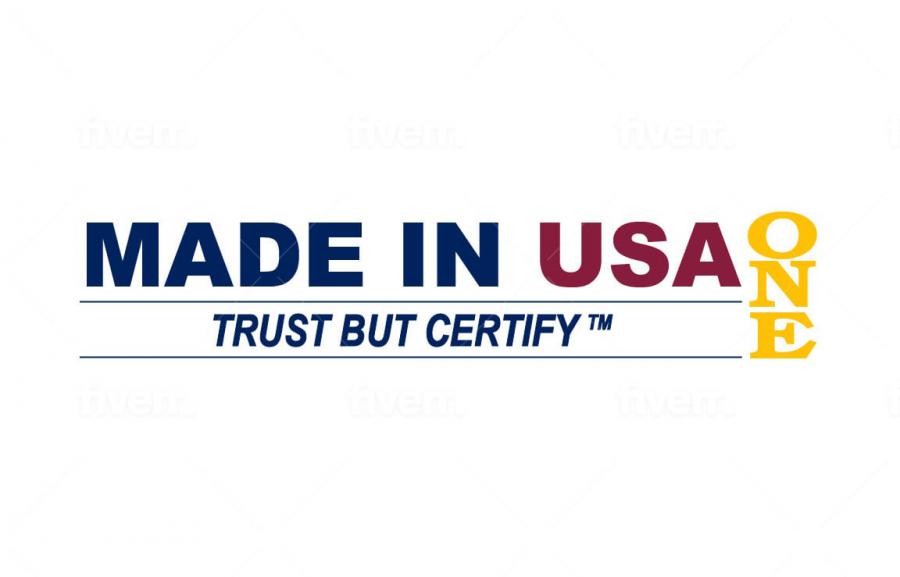A recent poll conducted by [bctv.org] found that 81% of Americans prefer to buy American-made gifts during the holiday season. This reflects a strong desire to support the economy, create jobs, and bolster small businesses by purchasing products made in the United States. Bryan Spiegel, owner of Azzy's Design Works, emphasized the importance of supporting local businesses and community involvement.
The poll also revealed that 75% of respondents believe companies should be penalized for falsely marketing products as 'Made in the USA', indicating a growing demand for transparency and accurate labeling. Additionally, 83% of respondents believe online retailers should clearly label the country of origin for products.
Despite the commitment to sourcing from U.S. producers, businesses like Azzy's Design faced obstacles during the pandemic and continue to grapple with challenges due to inflation. These challenges highlight the resilience and determination of American businesses to overcome adversity and continue supporting the local economy.
According to an article by [Wealth Of Geeks], 83% of Americans are willing to pay 20% more for products made in the U.S. The Federal Trade Commission defines American-made as having all significant parts and processing done in the U.S. The article highlights 26 American-made clothing brands, including American Giant, Brooks Brothers, and New Balance, among others. It discusses the benefits of buying American-made clothing, such as supporting local businesses, reducing environmental impact, promoting fair labor practices, and fostering a sense of patriotism.
However, a September report by economists Matilde Bombardini, Andres Gonzalez-Lira, Bingjing Li, and Chiara Motta for the National Bureau for Economic Research titled "The Increasing Cost of Buying American" presents a contrasting perspective. The report argues against expanding Buy American provisions, stating that while the Buy American Act has created over 50,000 jobs, it costs the economy between $111,500 and $137,700 per job. The tightening of policies on foreign inputs is projected to create fewer jobs at an even higher cost of $154,000 to $237,800 per job. The report highlights that higher costs arise from lower labor shares in newly protected sectors and increased public goods procurement costs in regions with high government procurement concentration [Newsmax].
The poll results and the article from Wealth Of Geeks indicate a growing demand for American-made products, including gifts and clothing, driven by a desire to support the economy, create jobs, and promote sustainable and ethical practices. Meanwhile, the economic analysis raises questions about the actual benefits of such policies, suggesting that the costs may outweigh the advantages.
A New Year's resolution article by [Colorado Springs Gazette] emphasizes the importance of buying American-made products. The author shares a personal resolution to only buy things made in America after being inspired by a factory in Maine that shifted its production to make masks during the COVID-19 pandemic. The factory's revenue increased, and they were able to provide jobs for more employees. The author encourages readers to support American-made products to boost the economy and pride in American manufacturing.
The article by [EIN News] discusses the distinction between 'MADE IN USA' and 'MADE IN AMERICA' labels to ensure labeling accuracy and consumer trust. The 'MADE IN USA' certification, regulated by the Federal Trade Commission (FTC), requires that a product must be manufactured within the United States, including its significant parts, processing, and labor. On the other hand, 'MADE IN AMERICA' is a broader term that can refer to products made anywhere in the Americas. The article highlights the implications of these labels for economic policies and international trade, including initiatives such as the Buy American Act and the Build Back Better Plan. It also mentions major trade agreements like NAFTA, USMCA, CAFTA-DR, and Mercosur. Accurate labeling is crucial for consumers to make informed decisions and support the U.S. economy. MADE IN USA ONE advocates for clear labeling and upholds the highest standards of quality for U.S.-manufactured products. Understanding these labeling distinctions is important in the context of global trade agreements and domestic economic policies.

[bctv.org] [Wealth Of Geeks] [Colorado Springs Gazette] [EIN News] [Newsmax]